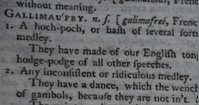 Earlier this week, I had the great good fortune to attend an enjoyable lecture presented by the, Long Room Hub, Trinity College Dublin. It was
Earlier this week, I had the great good fortune to attend an enjoyable lecture presented by the, Long Room Hub, Trinity College Dublin. It was
Blasphemy: Historical anachronism or modern crime?
by Professor David Nash, Department of History, Oxford Brookes University, UK. He is the author of Blasphemy in Modern Britain 1789-present (Ashgate Publishing, 1999 | Amazon) and Blasphemy in the Christian World (Oxford University Press, 2007 hbk; 2010 pbk | Amazon | cover left). His talk was in three parts: the historical context; the unhappy fit with current models and theories of human development; and the implications of taking blasphemy seriously again.
First, he used the historical context to illustrate the various reasons for longevity and adaptability of concepts of blasphemy. In ancient Greece, blasphemy consisted of speaking ill of the gods and of disturbing the peace. In early Christian dogma after the Council of Nicea in AD 325, it served to reinforce the virtues of orthodoxy. Medieval Christian Europe saw blasphemy as an element of heresy, but in the 13th century, blasphemy becomes decoupled from heresy, and it evolves into what Nash charaterised as the ‘passive blasphemy’ model, where the definition and enforcement of blasphemy is a matter for the State, seeking to eradicate states of mind and opinion that are dangerous to the community.…






/039985CF069B55A380256DA900467820/$FILE/heritage_link1.gif)